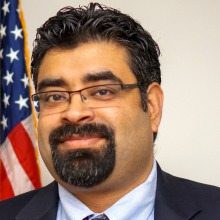
For American aerospace companies, doing business overseas has always been a particular challenge. Virtually all space-related products are subject to ITAR – the International Traffic in Arms Regulations – which prohibit international sales without special authorization from the Department of State. The extra time and cost involved in securing these authorizations and maintaining compliance has often made it difficult for American firms to effectively compete in the international marketplace.
As a leading provider of specialized data processing solutions for satellite control centers, ground station operators, and satellite and instrument manufacturers, Ingenicomm has often found it tough competing in the international market in the face of export restrictions. “We were essentially being almost totally excluded from many international markets because of strict ITAR licensing restrictions despite having technically superior solutions to provide” says Amit Puri, Ingenicomm’s President & CEO. “Many European satellite manufacturers, for example, refused to collaborate with American companies at all, because they were afraid that ITAR ‘see through’ rules would make their own products subject to export controls. Obviously, this has been a great help to our overseas competitors, who have been able to capture much of the market based on a lack of fair competition.”
Despite this, Ingenicomm does business with every major space agency. Having robust ITAR and FCPA procedures has enabled Ingenicomm to mitigate this situation, allowing the company to establish contracts with almost every major international space agency. Just in the past few months, Ingenicomm has secured international contracts with DRDC and CSA in Canada, NSPO in Taiwan and most recently a contact to provide a set of flight control systems for the Japanese Aerospace Exploration Agency’s unmanned HTV resupply vehicle. The company has been working with ITAR attorney Tom McVey of Williams Mullen in organizing its compliance efforts and preparing for its international expansion. “We have been working with Amit to ensure that Ingenicomm’s export process follows the best practices in the industry. Amit and his team have been highly disciplined in instituting a solid export compliance program.”
Recent developments in the ITAR regulations highlight the potential for further relief – a proposed change to the ITAR regulations regarding satellites would remove most non-defense satellite equipment from the munitions list, allowing it to be exported under a different set of rules set by the Department of Commerce. In preparation for the change, Ingenicomm has increased its international marketing efforts while simultaneously strengthening its internal export compliance procedures. Puri remains optimistic that this will only be the first of many victories in this arena.


